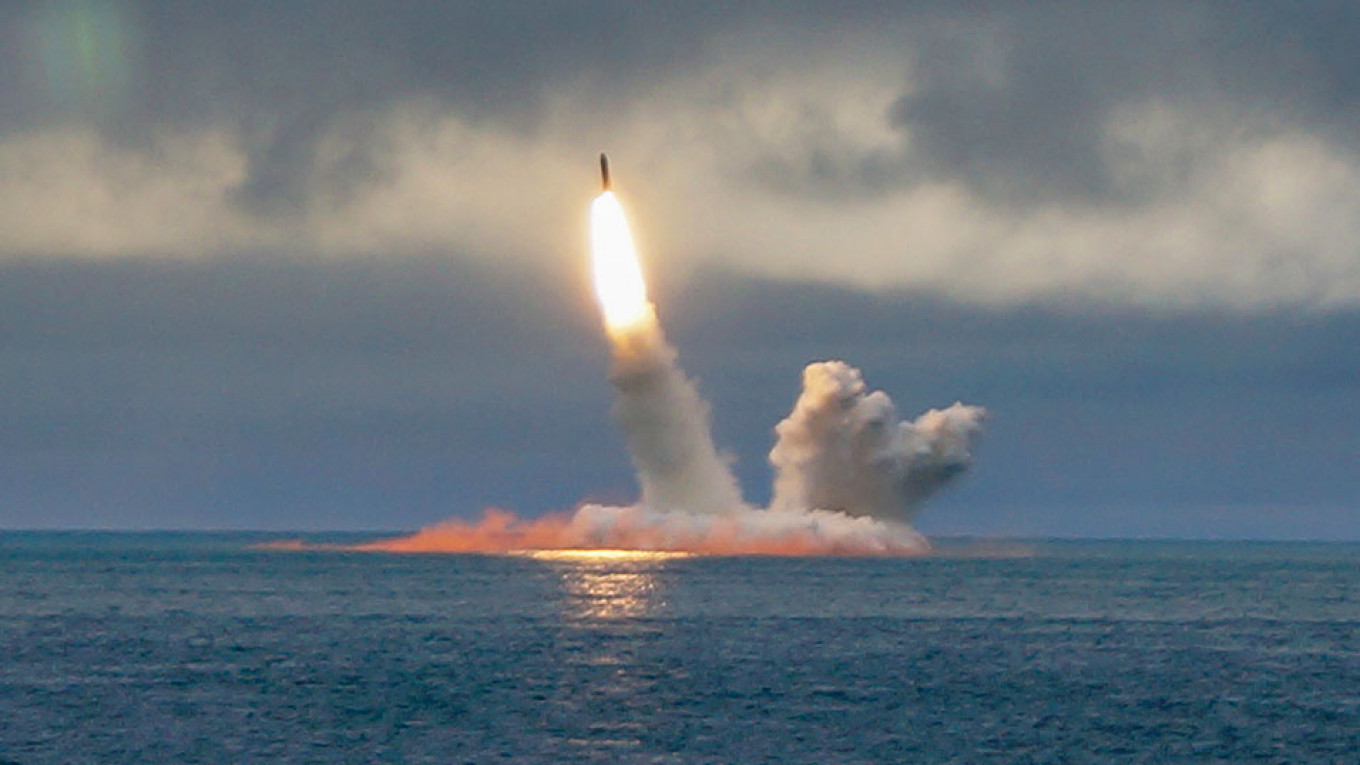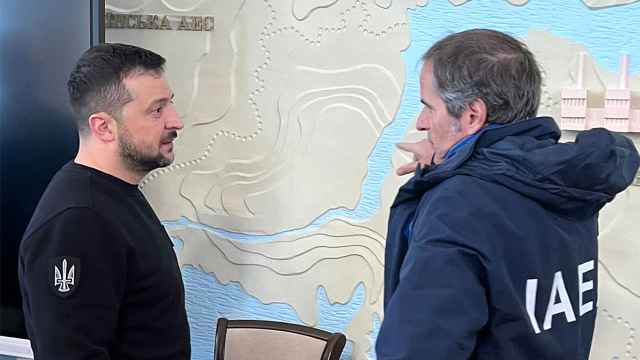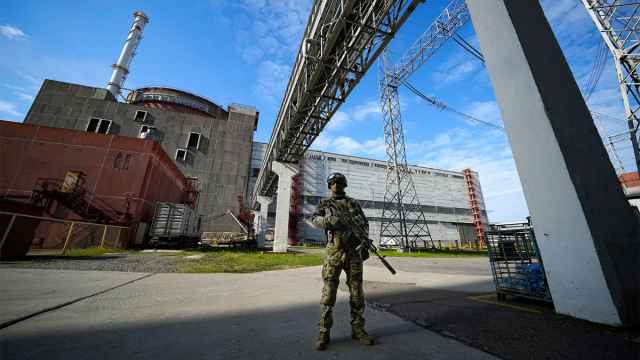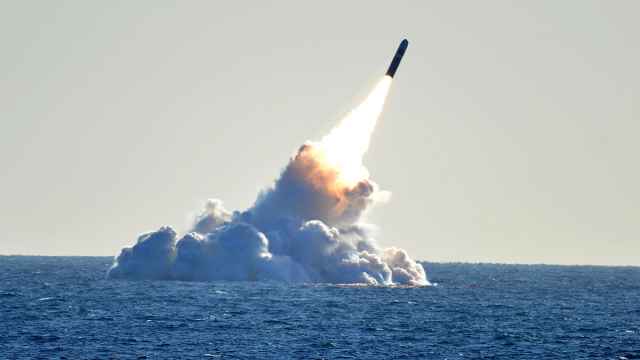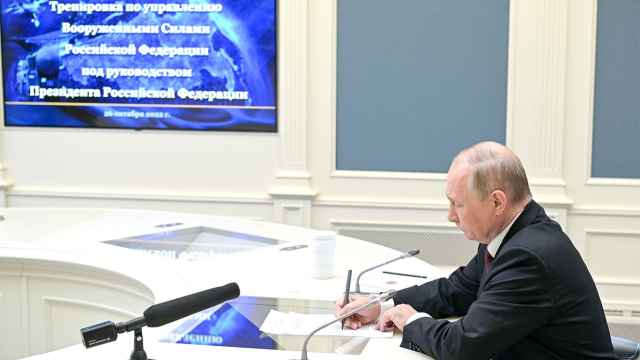Russia has released new data that appears to show a nuclear reactor was involved in a mysterious explosion when a weapons test went wrong on Aug. 8. The announcement narrows down the list of weapons that could have been undergoing testing — and, once again, poses the question of why Russia is giving out information piecemeal if the truth is going to come out anyway
The chronology of the official Russian reports of the accident is baffling. First, on Aug. 8, the authorities of Severodvinsk, a city close to the Nyonoksa test site, reported a radiation spike; the report was promptly pulled down from the city’s website. Then, the same day, the Defense Ministry reported that a liquid fuel missile engine had blown up, without explaining the radiation spike. On Aug. 10, Rosatom, the state company in charge of the Russian nuclear program, put out a press release saying its five employees who died in the accident had been “servicing isotope power sources on a liquid fuel engine.” The statement suggested that whatever weapon was being tested, it used, in addition to a rocket engine, a radioisotope thermoelectric generator (RTG) — a kind of long-lasting battery that doesn’t run a chain reaction but uses the heat released by the natural decay of radioactive materials.
Then, Russia didn’t issue any more explanations for a while, but Lassina Zerbo, executive secretary of the Comprehensive Nuclear Test Ban Treaty Organization, tweeted on August 18 that two Russian monitoring stations close to the accident site were experiencing technical problems. The organization also published a hypothetical model of how fallout from the accident theoretically could have traveled. On August 20, Zerbo reported the monitoring stations were back online and “backfilling data.”
Finally, Rosgidromet, the Russian weather monitoring service, put out a statement on Aug. 26, saying the radiation spike in Severodvinsk had been caused by four short-lived isotopes: Strontium-91, Barium-139 and -140 and Lantanum-140. To experts, this suggests that a reactor, not an RTG, was involved. The environmental organizations Greenpeace Russia and Bellona came out with statements pointing out that these particular radionuclides normally would be produced by a chain reaction. The Bellona statement quoted Nils Bohmer, head of research and development at the government agency Norwegian Decommissioning, who told the Barents Observer website that the presence of isotopes were “proof that it was a nuclear reaction that exploded.”
The head scientist of Rosatom’s Sarov nuclear center had already hinted that a reactor could have been involved, mentioning the U.S. Kilopower project, which produced a small nuclear reactor, as an example of a Western program similar to the one involved in the accident.
There are still plenty of unknowns about the blast. For example, even if Bohmer said he thought the reactor had “exploded,” that’s not certain. If, as U.S. President Donald Trump had tweeted, the weapon being tested had been a missile known as Burevestnik in Russia and Skyfall in the North Atlantic Treaty Organization member states, its reactor almost certainly would have left an isotope trail as it went up, accounting for the release of the radionuclides; if its engine then exploded, that would explain the casualties but leave it open whether the reactor was intact and whether it was subsequently recovered.
According to leaks, Skyfall has a solid fuel engine, not a liquid fuel one. The likely combination of a liquid fuel engine and a reactor, as well as the use of a marine test site, point toward a different superweapon, mentioned, like Skyfall, in Russian President Vladimir Putin’s 2018 state of the nation address: The Poseidon underwater drone, or its rumored seabed-launched sibling, the Skif.
Obviously, if any of the superweapons were involved, which appears likely, the Russian government’s immediate instinct would have been to cover its tracks. But the problem with such knee-jerk reactions is that truth about nuclear accidents is impossible to hide in the modern world. You can’t take monitoring stations offline without having to account for it; you can’t hide the results of measurements taken by an official agency like Rosgidromet, because international partners will demand answers even if you don’t care about your own population doing the same.
The Russian Defense Ministry’s desire for maximum secrecy is untenable given the pressure to provide specific information to the rest of the world. So a multi-stage process resembling strip poker has ensued. The Russian government has cast off one garment after another, finally to uncover enough for observers to reconstruct a more or less coherent picture of what the garments hid.
This is a game Russia also played after annexing Crimea: First, flat denials, then hints, then a straight admission.
Perhaps a future Russian government will realize that coming out with the truth isn’t just a more honorable policy — it’s also a less embarrassing one. For now, we should expect more information on what actually happened to the reactor during the Aug. 8 test — but not because Russia wants us to know the full story.
This article originally appeared in Bloomberg.
A Message from The Moscow Times:
Dear readers,
We are facing unprecedented challenges. Russia's Prosecutor General's Office has designated The Moscow Times as an "undesirable" organization, criminalizing our work and putting our staff at risk of prosecution. This follows our earlier unjust labeling as a "foreign agent."
These actions are direct attempts to silence independent journalism in Russia. The authorities claim our work "discredits the decisions of the Russian leadership." We see things differently: we strive to provide accurate, unbiased reporting on Russia.
We, the journalists of The Moscow Times, refuse to be silenced. But to continue our work, we need your help.
Your support, no matter how small, makes a world of difference. If you can, please support us monthly starting from just $2. It's quick to set up, and every contribution makes a significant impact.
By supporting The Moscow Times, you're defending open, independent journalism in the face of repression. Thank you for standing with us.
Remind me later.



